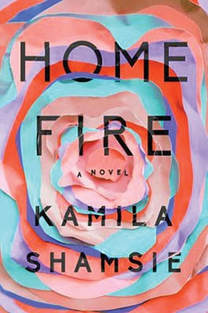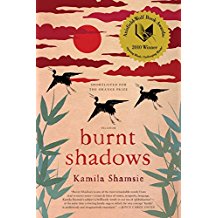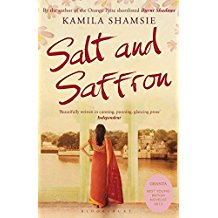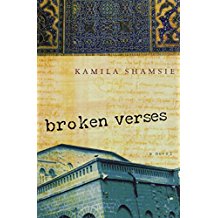“Home Fire” begins with a scene straight out of post-2001 airports, with Isma, a British woman of Pakistani descent being brought into an interrogation room before being allowed to board her flight to begin a PhD program in America. She is tested for hours on her loyalties to Britain, the country where she was born, and quizzed about her thoughts on “Shias, homosexuals, the Queen, democracy, ’The Great British Bake Off,' the invasion of Iraq, Israel, suicide bombers, dating websites.” Throughout, the book portrays a sense of what it is to live as a Muslim under the world’s accusative gaze; spending “our whole lives being so careful we don’t give anyone a reason to reject our visa applications. …Don’t stand next to this guy, don’t follow that guy on Twitter, don’t download that Noam Chomsky book.” The narrative of “Home Fire” follows the lives of Isma and her two siblings, who were all orphaned in their youth; the father they never knew dying on route to the Guantánamo Bay detention camp. Their stories become intertwined with another – of Eamonn, a charismatic son of a powerful British political figure. The novel comes in sections, exploring each unique perspective, and the complexities in their view of the world and each other’s beliefs. It also explores the devotion that comes with family, and with love. The pacing of “Home Fire” is perfect, you don’t want to set it down for a second, and the writing reaches moments of feverish beauty. In one reflective passage, the momentum carries you forward in a poetic daze: "Grief was bad-tempered; grief was kind; grief saw nothing but itself; grief saw every speck of pain in the world; grief spread its wings large like an eagle, grief huddled small like a porcupine; grief needed company, grief craved solitude; grief wanted to remember, wanted to forget; grief raged, grief whimpered." Shamsie also brilliantly turns the chorus of Sophocles into our modern crowd-sourced media platform, complete with hashtags and social commentary on the morality of all involved. In his review, New York Times critic Dwight Garner writes that “'Home Fire' builds to one of the most memorable final scenes I’ve read in a novel this century.” It is well worth the preceding chapters to get to that point of this timely, exquisite novel. -Nathan Child This review originally appeared in the Aspen Daily News on September 15, 2017.
0 Comments
Your comment will be posted after it is approved.
Leave a Reply. |
Adult News & reviewsLibrary news, info about upcoming events, reviews of books and films, and a look at the topics that affect us as a library. Archives
July 2023
|
General |
Borrowing |
About |






 RSS Feed
RSS Feed
